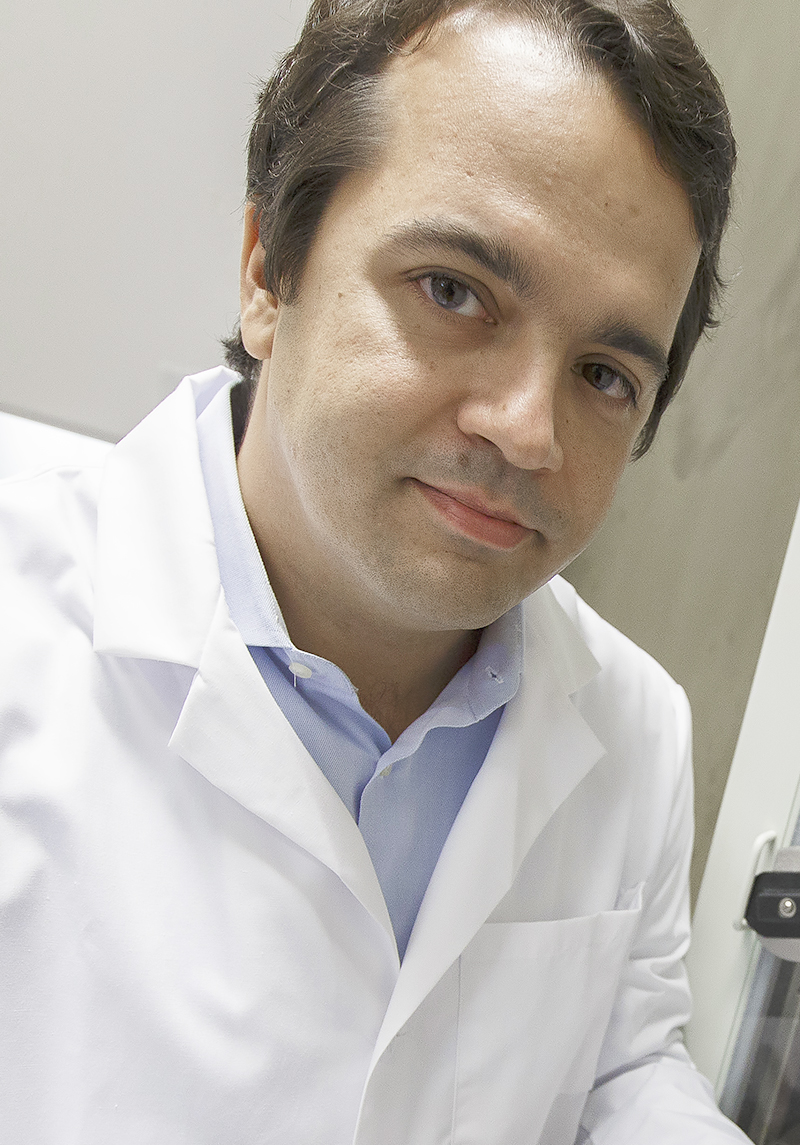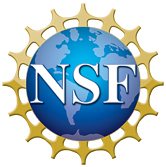
Dr. Anton Malko
Two UT Dallas faculty members recently earned National Science Foundation Faculty Early Career Development (CAREER) Awards.
Dr. Anton Malko, assistant professor of physics, and Dr. Leonidas Bleris, assistant professor of bioengineering, will each receive $400,000 in funding for five years of research into areas of renewable energy and genome editing technologies, respectively.
Malko’s award will advance his research in the development of new hybrid materials that could offer a versatile platform for optoelectronic applications. In particular, they show promise for the next generation of photovoltaic solar cells that will harness sunlight for use as an ecofriendly and renewable energy-generating technology.
“This project is based on our previously funded research that studied elemental energy transfer processes and surface modifications in various configurations of hybrid nanostructures,” Malko said. “At the end of this five-year CAREER project, we want to be able to apply all the new physics we learned to create thin film, flexible and cost-effective prototype solar-cell modules, which will able to efficiently convert solar light to electric power.”

Dr. Leonidas Bleris
For decades, researchers have known that light from the sun provides an almost limitless supply of energy. The challenge has been to develop efficient PV modules that can harvest solar energy to create electricity.
Recent advances in the nanostructure-based PV architectures and light-harvesting strategies have already reduced the modules’ costs and improved their efficiencies. The changes should hasten economically competitive renewable energy sources, Malko said.
Malko said the award was a result of collaborations with other University faculty and schools. He and his team are working closely with colleagues in the Department of Materials Science and Engineering on the project.
“Earning a CAREER award is a major accomplishment,” said Dr. Robert Glosser, head of the Department of Physics. “This puts the department and the School of Natural Sciences and Mathematics alongside major research universities across the country. This is a prestigious and highly sought-after award reserved for young faculty members who have the potential to become leaders in new and emerging research fields.”
Malko joined UT Dallas in 2007 after postdoctoral appointments at the Swiss Federal Institute of Technology and Los Alamos National Laboratory. He received a PhD from New Mexico State University for the research he completed at Los Alamos.
About CAREER Awards

The Faculty Early Career Development Program supports junior faculty who exemplify the role of teacher-scholars through outstanding research and excellent education that are integrated in the mission of their organizations. The highly selective program is the National Science Foundation’s most prestigious awards for junior faculty who are considered likely to become leaders in their field.
Bleris’ award will develop, optimize, and implement novel transcription activator-like effector (TALE) libraries and associated genome-editing technologies.
These libraries act as an index of specific keys that can target, activate or turn off specific genes. The ability to probe the genome using the proposed high-throughput technology will shed new light on biological properties that could lead to new treatments for genetic diseases, such as cancer, and applications in stem cell reprogramming.
“This is a revolutionary era for biomedical engineers. We now have the ability to control and modify the genome at a single nucleotide resolution. The opportunities are endless,” Bleris said. “TALEs are newly discovered proteins that can be engineered to target specific nucleotide sequences in cells and can act as regulators of gene expression at the transcriptional level.”
For this project, Bleris and his team will develop TALE-based genome editing technologies for high-throughput experiments.
“We hope to use these technologies to unravel cellular and disease properties, and eventually discover novel therapeutics,” Bleris said.
Bleris also will develop a customized special-topics class on synthetic biology. The role and properties of student networks and collaborative learning will be explored.
The educational plan consists of efforts linked with research, including support for the UT Dallas International Genetically Engineered Machine undergraduate synthetic biology team, and working with leading U.S. research and science policy institutions via internships.
“Dr. Bleris’ work on TALE-based genome editing technologies has significant potential for treating a host of diseases,” said Dr. Robert Rennaker, head of the Department of Bioengineering. “The CAREER award is recognition by some of the best researchers in his field of the significance of this work and their confidence in Dr. Bleris’ abilities. We are proud of Dr. Bleris’ hard work and determination.”
Bleris joined the Erik Jonsson School of Engineering and Computer Science in 2009 after a postdoctoral appointment at Harvard University. He received a PhD from Lehigh University in 2005, and a diploma in electrical and computer engineering from Aristotle University, Greece in 2000.